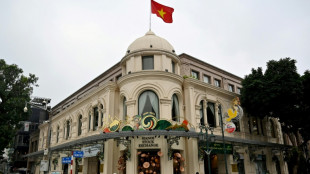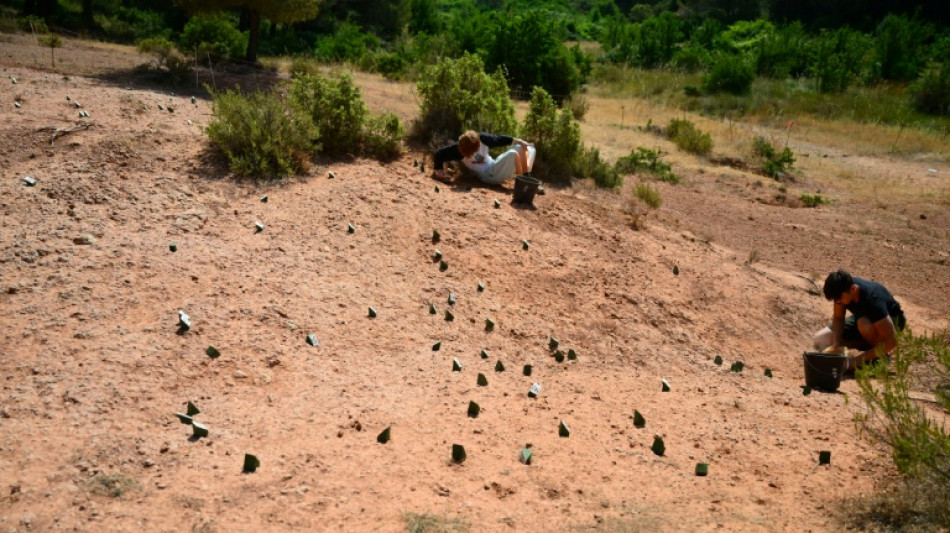
-
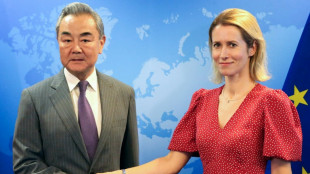 China, EU should not 'seek confrontation': FM Wang
China, EU should not 'seek confrontation': FM Wang
-
'Big Comrade': Former defence chief takes reins as Thai PM
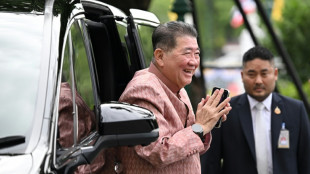
-
 4 dead, 38 missing after ferry sinks on way to Indonesia's Bali
4 dead, 38 missing after ferry sinks on way to Indonesia's Bali
-
Thailand set for another acting PM after cabinet reshuffle
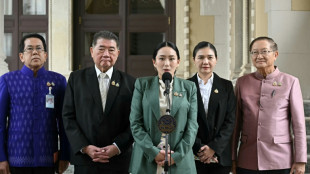
-
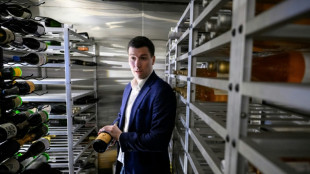 In US capital, Trump tariffs bite into restaurant profits
In US capital, Trump tariffs bite into restaurant profits
-
Sean Combs: music pioneer, entrepreneur -- and convicted felon

-
 In California, fear of racial profiling grips Latino communities
In California, fear of racial profiling grips Latino communities
-
Home-grown players delight Wimbledon fans on hunt for 'new Andy Murray'
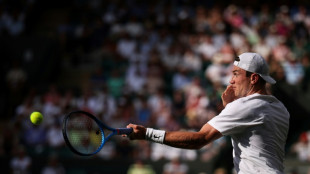
-
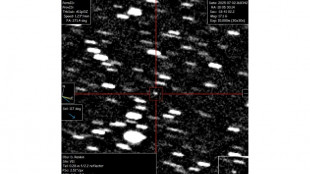 Third-ever confirmed interstellar object blazing through Solar System
Third-ever confirmed interstellar object blazing through Solar System
-
Joao Pedro arrival boosts Chelsea ahead of Palmeiras Club World Cup test

-
 Lions start to roar in ominous Wallabies warning
Lions start to roar in ominous Wallabies warning
-
Kellaway, Tupou headline Waratahs team to face Lions

-
 Four All Blacks debutants to face France in first Test
Four All Blacks debutants to face France in first Test
-
Ukraine scrambling for clarity as US downplays halt to arms shipments

-
 Peru clinic that leaked Shakira medical record given hefty fine
Peru clinic that leaked Shakira medical record given hefty fine
-
UK's Starmer backs finance minister after tears in parliament

-
 Trump tax bill stalled by Republican rebellion in Congress
Trump tax bill stalled by Republican rebellion in Congress
-
US stocks back at records as oil prices rally
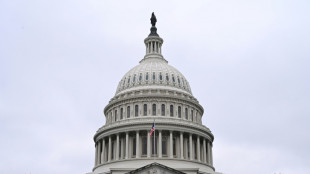
-
 Norway battle back to beat Swiss hosts in Euro 2025 opener
Norway battle back to beat Swiss hosts in Euro 2025 opener
-
Netanyahu vows to uproot Hamas as ceasefire proposals are discussed

-
 Tarvet won't turn pro yet, despite pushing Alcaraz at Wimbledon
Tarvet won't turn pro yet, despite pushing Alcaraz at Wimbledon
-
Ukraine left scrambling after US says halting some arms shipments

-
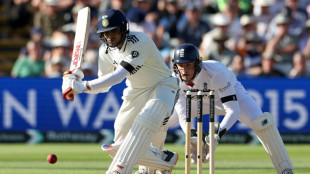 India captain Gill's hundred repels England in second Test
India captain Gill's hundred repels England in second Test
-
Possible interstellar object spotted zooming through Solar System
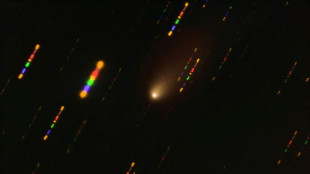
-
 Alcaraz ends Tarvet's Wimbledon adventure, Paolini crashes out
Alcaraz ends Tarvet's Wimbledon adventure, Paolini crashes out
-
Why is there no life on Mars? Rover finds a clue
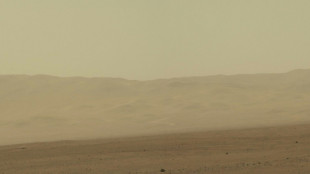
-
 Former finalist Paolini stunned as Wimbledon seeds continue to fall
Former finalist Paolini stunned as Wimbledon seeds continue to fall
-
Tesla reports lower car sales, extending slump
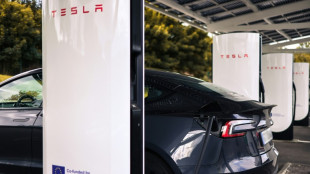
-
 Finland open Women's Euro 2025 with win over Iceland
Finland open Women's Euro 2025 with win over Iceland
-
India captain Gill hits another hundred against England in 2nd Test
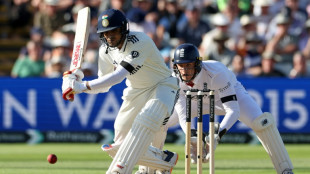
-
 Hamas mulls truce proposals after Trump Gaza ceasefire push
Hamas mulls truce proposals after Trump Gaza ceasefire push
-
Alcaraz ends Tarvet's Wimbledon adventure, Sabalenka advances

-
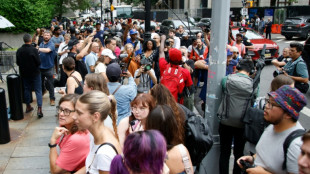 Tears, prayers, exultation: Diddy radiates relief after partial acquittal
Tears, prayers, exultation: Diddy radiates relief after partial acquittal
-
Ruthless Alcaraz ends Tarvet's Wimbledon fairytale

-
 Bangladesh collapse in ODI series opener to hand Sri Lanka big win
Bangladesh collapse in ODI series opener to hand Sri Lanka big win
-
Trump says Vietnam to face 20% tariff under 'great' deal
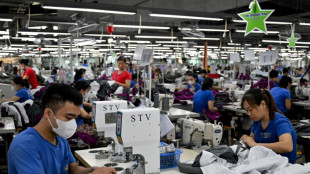
-
 US senator urges bribery probe over Trump-Paramount settlement
US senator urges bribery probe over Trump-Paramount settlement
-
Nazi-sympathising singer's huge gig to paralyse Zagreb
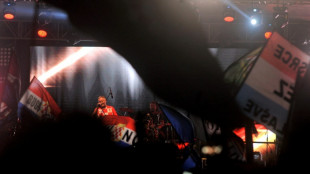
-
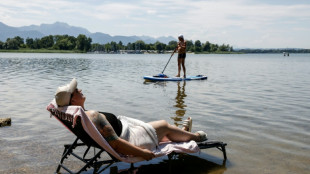 Germany swelters as European heatwave moves eastwards
Germany swelters as European heatwave moves eastwards
-
Sabalenka tells troubled Zverev to talk to family about mental health issues

-
 Hong Kong govt proposes limited recognition of same-sex couples' rights
Hong Kong govt proposes limited recognition of same-sex couples' rights
-
Wall Street shrugs off drop US private sector jobs
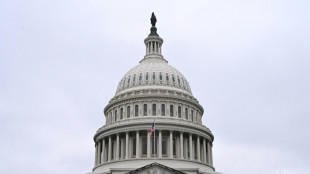
-
 Spain star Bonmati recovering well from meningitis, says coach Tome
Spain star Bonmati recovering well from meningitis, says coach Tome
-
Pogacar must 'battle' for Tour de France title says director

-
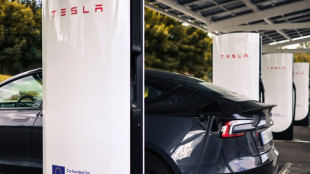 Tesla reports lower car sales but figures better than feared
Tesla reports lower car sales but figures better than feared
-
Alcaraz aims to avoid Wimbledon giant-killing after Sabalenka wins

-
 England captain Stokes makes Jaiswal breakthrough in second Test
England captain Stokes makes Jaiswal breakthrough in second Test
-
Sean 'Diddy' Combs acquitted of sex trafficking, convicted on lesser charge
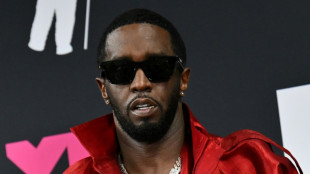
-
 Sabalenka praying for no more Wimbledon upsets after battling win
Sabalenka praying for no more Wimbledon upsets after battling win
-
Hamas says discussing proposals after Trump Gaza ceasefire push


Eggs en Provence: France's unique dinosaur egg trove
At the foot of Sainte Victoire, the mountain in Provence immortalised by Impressionist painter Paul Cezanne, a palaeontologist brushes meticulously through a mound of red clay looking for fossils.
These are not any old fossils, but 75-million-year-old dinosaur eggs.
Little luck or skill is needed to find them: scientists believe that there are more dinosaur eggs here than at any other place on Earth.
The area, closed to the public, is nicknamed "Eggs en Provence", due to its proximity to the southeastern city of Aix en Provence.
"There's no other place like it," explained Thierry Tortosa, a palaeontologist and conservationist at the Sainte Victoire Nature Reserve.
"You only need to look down to find fragments. We're literally walking on eggshells here."
Around 1,000 eggs, some of them as big as 30 centimetres (12 inches) in diameter, have been found here in recent years in an area measuring less than a hectare -– a mere dot on a reserve that will span 280 hectares once it is doubled in size by 2026 to prevent pillaging.
"We reckon we've got about one egg per square metre (11 square feet). So there are thousands, possibly millions, here," Tortosa told AFP.
"Eggs" is not in the business of competing with other archaeological sites -– even though Tortosa finds the "world record" of 17,000 dinosaur eggs discovered in Heyuan, China, in 1996 vaguely amusing.
"We're not looking to dig them up because we're in a nature reserve and we can't just alter the landscape. We wait until they're uncovered by erosion," he said.
"Besides, we don't have enough space to store them all. We just take those that are of interest from a palaeontology point of view."
- Holy Grail -
Despite the plethora of eggs on site, the scientists still have mysteries to solve.
Those fossils found so far have all been empty, either because they were not fertilised or because the chick hatched and waddled off.
"Until we find embryos inside -– that's the Holy Grail -- we won't know what kind of dinosaur laid them. All we know is that they were herbivores because they're round," said Tortosa.
Fossilised dinosaur embryos are rarer than hen's teeth.
Palaeontologists discovered a tiny fossilised Oviraptorosaur that was at least 66 million years old in Ganzhou, China, around the year 2000.
But Tortosa remains optimistic that "Eggs" holds its own Baby Yingliang.
"Never say never. In the nine years that I've been here, we've discovered a load of stuff we never thought we'd find."
Which is why experts come once a year to search a new part of the reserve. The location is always kept secret to deter pillagers.
When AFP visited, six scientists were crouched under camouflage netting in a valley lost in the Provencal scrub, scraping over a few square metres of clay-limestone earth, first with chisels, then with pointy-tipped scribers.
"There's always something magical -- like being a child again -- when you find an egg or a fossilised bone," specialist Severine Berton told AFP.
- Unique -
Their "best" finds -– among the thousands they have dug up -- include a small femur and a 30-centimetre-long tibia-fibula. They are thought to come from a Rhabdodon or a Titanosaur -- huge herbivores who roamed the region.
In the Cretaceous period (89-66 million years BCE), the Provencal countryside's then-flooded plains and silty-clayey soils offered ideal conditions for dinosaurs to graze and nest, and perfect conditions to conserve the eggs for millennia.
The region, which stretched from what is now Spain to the Massif Central mountains of central France formed an island that was home to several dinosaur species found nowhere else in the world.
Alongside the endemic herbivores were carnivores such as the Arcovenator and the Variraptor, a relative of the Velociraptor of Jurassic Park fame.
In 1846, French palaeontologist Philippe Matheron found the world's first fossilised dinosaur egg in Rognac, around 30 kilometres from Eggs.
Despite efforts to stop pillaging, problems persist, such as when a wildfire uncovered a lot of fossils in 1989 and "everyone came egg collecting", Tortosa said.
Five years later the site was designated a national geological nature reserve, closed to the public -- the highest level of protection available.
The regional authorities are now mulling over ways to develop "palaeontology tourism", a move Tortosa applauds.
"France is the only country in the world that doesn't know how to promote its dinosaurs," Tortosa said.
"Any other place would set up an entire museum just to show off a single tooth."
G.AbuOdeh--SF-PST

